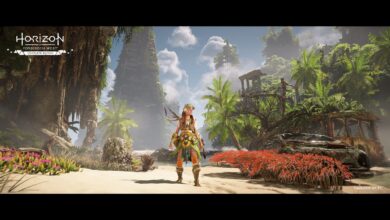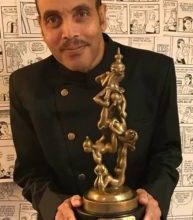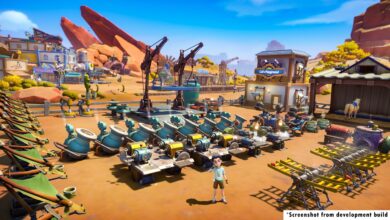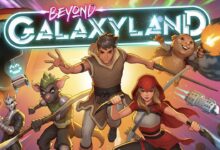Keza MacDonald On Meeting Miyamoto, ‘Switch 2’, And Her Upcoming Nintendo Book
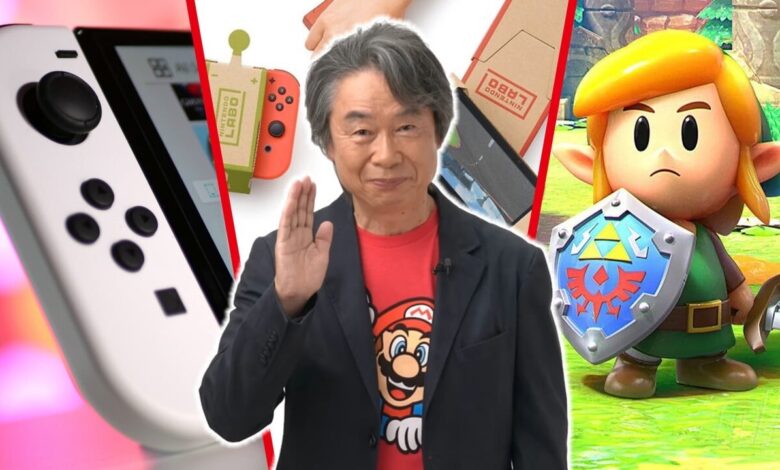

The London Developer Conference (LDC) made its almighty return last week, allowing some of the biggest names in the gaming world the chance to talk about the industry, where it currently sits, and where it is likely to go.
One of the speakers in this year’s programme was Keza MacDonald, video games editor for The Guardian and author of 2020’s You Died: The Dark Souls Companion book.
After presenting a ‘Fireside Chat’ to the LDC audience, Keza kindly agreed to sit down with us to talk about her next book, Super Nintendo: How One Japanese Company Helped the World Have Fun as well as chat about the company more generally and her hopes for the future (yes, including ‘Switch 2’).
Our conversation covered a range of topics including balancing work and personal life, Zelda remakes we’d love to see and Keza’s experiences of meeting Shigeru Miyamoto. Enjoy!
Nintendo Life (Jim Norman): Starting with the big question: Why Nintendo for this book?
Keza MacDonald: So, apart from the fact that I’m a big Nintendo nerd and I’ve been playing Nintendo games since I was six, for me, if you want to understand people, you need to understand “play”. Because we’re one of three species that “plays” into adulthood. And if you want to understand play, you need to understand video games, which a lot of people still don’t. And then if you want to understand video games, you’ve got to understand Nintendo, because, for me, Nintendo is like the ‘firmament’ of games. It essentially set the blueprint for modern gaming.
If you look at Nintendo’s history, time and time again it’s been ahead of the curve. Nintendo ushered in the expansion of the gaming audience with the Wii before people knew that was a thing that needed to happen. If you look at Nintendo games such as Animal Crossing, that game makes perfect sense in 2024, but it originally came out [in Japan] on the Nintendo 64!
So many of Nintendo’s ideas end up being things that are now the standard for games, foreshadowing trends that become industry-defining. So for me, Nintendo is the way you understand games. You look at what Nintendo does now, at what it’s done for the last 20 years, and you understand how gaming has made its way into the centre of modern culture and life.

Being such a fan of Nintendo, what was the research process like for this book?
I got my first job on a games magazine, (GamesTM, RIP) when I was 16 years old. I did work experience and was asked to stay for an extra week. Then, at the end of that week, they said, “Do you want a job?” and I just quit school.
This is not what happens anymore. It’s a real shame that you don’t hang around on forums and then do work experience. I do not know how people get into game journalism anymore!
So I’ve been covering Nintendo games professionally and interviewing Nintendo developers for nearly 20 years. I have this massive cache of interviews with people like Eiji Aonuma [Current Legend of Zelda series producer] and other Animal Crossing creatives from the DS and Wii era. It paints a really interesting picture, looking at all that stuff that I’ve done for my job.
Nintendo’s history of success and failure is integral to how you understand that company
So I’ve been looking back at everything I’ve ever written about Nintendo, which is a lot. I think I’ve interviewed pretty much everyone at Nintendo who you would want to at this point. It’s a huge privilege. I think that there’s a lot of really interesting stuff in those interviews, so that’s been a lot of my research.
I’ve also been going and reading what everybody else has ever interviewed Nintendo about. There have been a couple of good books about Nintendo and some of them are quite old now. Chris Kohler’s [formerly of Wired] book, Power-Up, is a really interesting one because it was about Nintendo in a different era.
Then I have actually been playing quite a lot too. I’m someone who doesn’t stick with the same game for very long. Generally, I will play it and I’ll move on. I was trying to at one point make a list of all the Nintendo games that I can remember playing and then a list of all the ones I’ve never played that I would like to. Getting through that would take a lifetime I think, especially as I have two small children now. But I have been playing quite a lot of things that I had forgotten, but that were joyful at the time. I spent a lot of time with Osu! Tatakae! Ouendan recently, for instance.

As you said there, Nintendo has a lot of games split across many franchises. How did you go about whittling that massive list down into 12 for this book? I assume it was quite the challenge.
It was because I love Nintendo! Games that, to me, are super interesting and I could easily write 5,000 words on, are maybe not the ones that other people might want to read about, right? So some were obvious: Zelda, Mario, Pokémon, and others are a way for me to talk about a topic that is “vital video games”.
You might not expect to see Nintendo Labo as one of these 12 games, but for me, that’s a way to talk about Nintendo’s way of hardware innovation. It’s a way to talk about how Nintendo views the physical controller, the physical actions of play, and also about Nintendo’s history as a toy maker.
You might not necessarily expect Metroid there, but Metroid is a really interesting way to look at not just the sprawling evolution of the concept of a game map, but also gender in games, how that’s shown up in Nintendo games throughout the years, and how it’s changed quite a lot.
Basically, some of the games are the obvious ones that you just have a ton of material on, while others provide an interesting way to talk about how games have made their way into our lives.
Of those hundreds of franchises that Nintendo has produced over the last 30 years, there are some that have been pushed to the side — shout out to Star Fox and Kid Icarus. Are there any that you regret not being able to include in this book?
Star Fox is one. I love the development story of Star Fox on the SNES and how Dylan Cuthbert and the other British teenagers from Argonaut were just transported to Kyoto to help them make this game. But it’s been hard to whittle it down because the book needs to say something broader about games as well and there’s limited space. So there are ones that I think are really interesting, but they don’t necessarily say anything broader about Nintendo as a company, or about video games as a whole. The ones that have fallen by the wayside are the ones that are interesting stories by themselves, but don’t go broader.

Nintendo is a company of two sides. It’s obviously had massive successes, but then it’s also had some flops. How have you navigated those two viewpoints in this book?
So for me, Nintendo’s history of success and failure is integral to how you understand that company. That is not a bug, that’s a feature of how Nintendo operates. Nintendo chooses an idea and it goes for that idea. People often say that Nintendo operates in a vacuum, and I don’t think that it necessarily does. But it does commit to its ideas because Nintendo does not financially “bet the farm” on any single console. The ones that are successful bankroll the ones that are not and it allows them to innovate and follow quite wild ideas. Like, WarioWare Twisted! — who would have come up with that!?
I genuinely could talk about Nintendo forever
I think Nintendo Labo is a brilliant example of this, which is why I chose it for the book. But these ideas are just like, “what?”. Very occasionally, one of them will be a multi-million seller, like the Wii Fit Balance Board. But the fact that Nintendo prioritises innovation, ideas and creativity, frees it to fail.
Failure is an integral part of the Nintendo story. It throws creative ideas out, some of them stick and some of them don’t, but that’s a characteristic of Nintendo. It frees them from what a lot of other game companies have to do, which is only go for things that they already think will be successful. That’s not how you innovate.
From failures to successes: you’ve written a book! Congratulations! Can you tell us a bit about the writing schedule behind this book? Because you’re a busy person, you have a busy life and you write for The Guardian as well.
I co-wrote a book in 2016 about Dark Souls with a very talented writer called Jason Killingsworth [founder and creative director at Tune & Fairweather]. With that book, I didn’t have any children and I was in my 20s, so I did it by finishing my job, maybe having some dinner and then going to my little office and writing until three in the morning every day for four months. Completely normal non-workaholic behaviour. General advice: don’t do that at all. Never do it.
For this one, I had to be much more structured. I took a full month off from my day job to get the bones of the book down and since then I’ve been taking a couple of days each week to really concentrate on it. For me, if I’m writing a big project, I have to concentrate on it properly. I’m not someone who can do 500 words a day. Some writers do work like that, but I can’t. I have to be all in on it. I’ve had to construct time that’s clear of other things for me to be able to concentrate, but then when I can concentrate, I can work real fast.
It also helps that I genuinely could talk about Nintendo forever. I did a bunch of research, but it’s not something I’ve had to learn about from the ground up. I’ve had an idea for this book in my head for six years, so by the time I signed the contract with Faber, I was ready to go. A lot of it was already kind of sketched out, so that helped.
But writing a book is horrible. It’s like having the hugest homework assignment you can possibly imagine and it lasts for like a year.

Can you tell us a little bit about the publishing process going forward? Because it doesn’t come out until spring 2026.
…the story of Mario is essentially the story of the birth of modern video games
I’m hoping it’ll actually be late 2025, but it might be spring ’26. The publishing world is extremely slow. Between you finishing your manuscript and the book coming out is probably 18 months, which is where I’m at right now. But it depends on the publisher’s marketing schedules honestly, because they’ve got a lot of books coming out. You’re not going to get the Christmas slot because that’s going to be, I don’t know, the biography of Obama or something.
It’s very strange because with online journalism, which is mostly what I’ve been doing for all of my adult life, you do a thing, put it online, and get immediate feedback. The space between having the idea for a thing and it being up is maybe a week or maybe a few hours depending on what you’re doing. But then books take so long. And then it’s another year before it comes out in paperback so it really is a marathon effort! But I do find it very rewarding because it’s a different kind of work. You don’t have to look at Twitter, for a start.
That’s the dream!
Exactly. You can think about things and you can spend much longer than you normally would on them. I’m used to working to such tight deadlines all the time, and the newspaper is daily. I worked at Kotaku before this and that was just loads of stuff. That’s how my brain works because I’ve trained it to do that, but having the space to have a bigger project is actually really nice.
You mentioned your Dark Souls book, You Died, earlier. If you were to choose to dedicate an entire book to a Nintendo franchise, what would it be?
I think I would pick Zelda. If I were going for the one that would sell best, I’d pick Mario.
Honestly, I don’t know what the cover’s going to look like for this book yet, but I would be so surprised if it doesn’t have Mario on it because the story of Mario is essentially the story of the birth of modern video games and it’s of immense historical interest.
But with Zelda, you could go further than just the games. You could talk about how it’s influenced film and fantasy, and I think it’s influenced how a lot of people think about a lot of stuff. Especially in the next few years, we’re going to see how Breath of the Wild and Tears of the Kingdom have influenced how a whole generation of people think.
So yeah, I’d pick Zelda. Partly because it’s my favourite, but also because it’s the one that people feel most. People get really poetic when they talk about Zelda because it means a lot to them. No one’s that poetic about Mario. I say that, but there was an entire book of poetry based on Super Mario World called If All the World and Love Were Young. I read that poetry book, and there’s a quote from it at the beginning of the Mario chapter.
With Zelda, there are enough games and you could talk about each of them, but then I also think that it’s the most meaningful Nintendo series for a lot of people.

